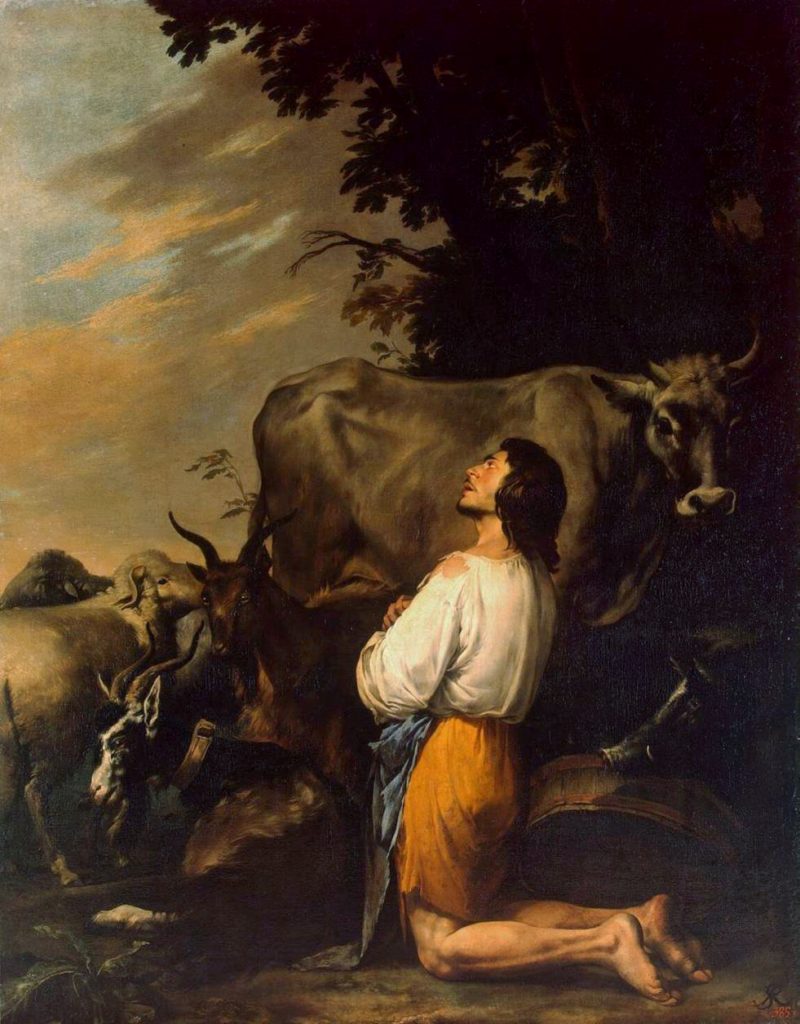
Spiritual Sunday
The prodigal son is one of Jesus’s most challenging parables. I once read about a rightwing Christian arguing that Jesus had it all wrong since the story’s outcome violated her views about who deserves to be helped, whether by God or the government.
Writers have had their own interesting takes. Andre Gide, tormented by the clash between his homosexuality and his faith, depicts a prodigal who must be spurned by society in order to discover his true love for his father. Edith Nesbit fears that we can never go home again while Rudyard Kipling prefers the suffering of the road to the shame he would feel if her returned.
Although they are far different poets, Rilke has a similar take to Kipling. His son feels entangled in his family, which he describes as clinging to him like burrs and branches. These family dramas are “ours and yet not ours,” and only through the perspective that leaving provides can he
glimpse how vast and how impersonal
is the suffering that filled your childhood
Like Gide and Kipling, he goes forth into
uncertainty,
to a country with no connections to us
and indifferent to the dramas of our life.
What drives the prodigal? Rilke imagines several motivations. While not all of them are positive, all are recognizably human:
Impatience, instinct, a dark need,
the incapacity to understand.
Like Kipling, the poet calls for the prodigal to let go and “bow to all this,” regardless of the consequences:
To bow to all this.
To let go--
even if you have to die alone
The poem ends with an open-ended question: “Is this the start of a new life?” Maybe yes, maybe no. I think of Shelley’s line, “I fall upon the thorns of life, I bleed,” and also of George Herbert’s thought that God endowed us with restlessness, on the grounds that, “ If goodness lead him not, yet weariness may toss him to [God’s] breast.” Gide, as I have noted, has a similar take.
I won’t attribute Herbert’s or Gide’s piety to Rilke except to note that fully immersing himself in all life had to offer was a spiritual quest for him. God can be found on the road and in many different guises.
The Departure of the Prodigal Son
By Rainer Maria Rilke
To go forth now
from all the entanglement
that is ours and yet not ours,
that, like the water in an old well,
reflects us in fragments, distorts what we are.
From all that clings
like burrs and brambles--
to go forth
and see for once, close up, afresh,
what we had ceased to see--
so familiar it had become.
To glimpse how vast and how impersonal
is the suffering that filled your childhood.
Yes, to go forth,
hand pulling away from hand.
Go forth to what? To uncertainty,
to a country with no connections to us
and indifferent to the dramas of our life.
What drives you to go forth?
Impatience, instinct, a dark need,
the incapacity to understand.
To bow to all this.
To let go--
even if you have to die alone.
Is this the start of a new life?
Previous posts on “The Parable of the Prodigal Son”
Andre Gide: We Feel Closest to God in the Desert
Edith Nesbit, Rudyard Kipling: Out There the World Is Cruel and Loud

